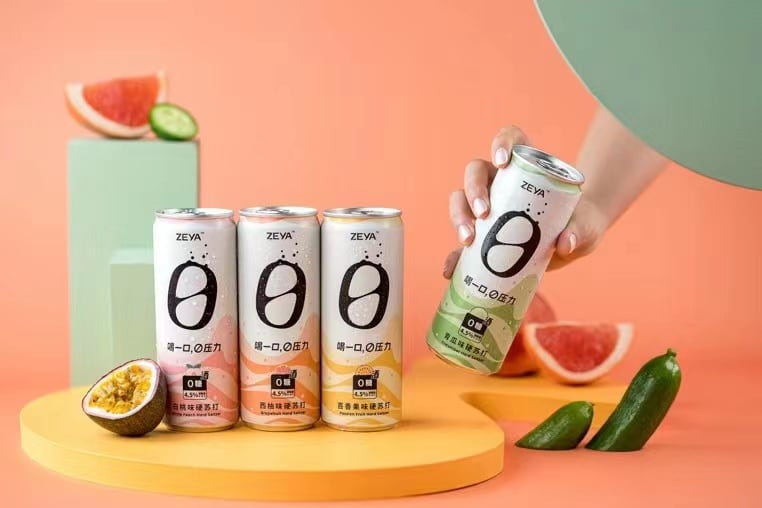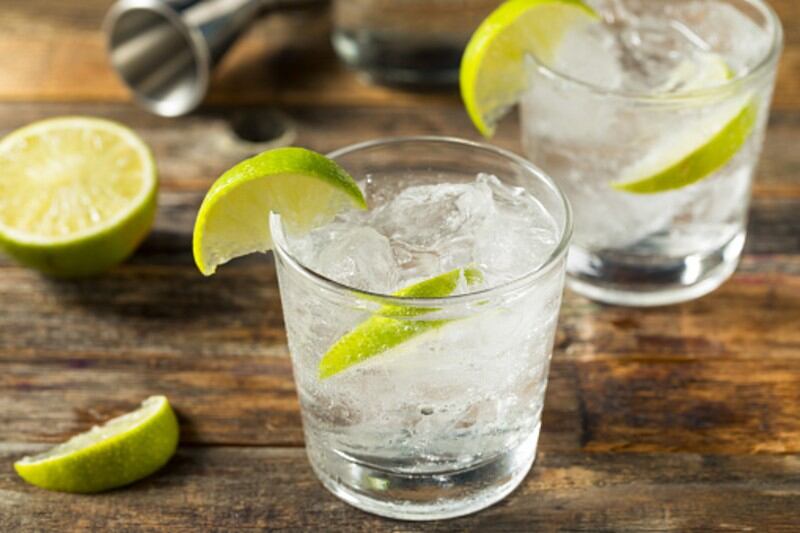Founded in June 2020, the Shanghai-company first introduced six hard seltzer products in China, which were low calorie, and contained zero sugar.
They came in cucumber, blackberry, strawberry, white peach, grapefruit and passionfruit flavour variations.
The rebrand is part of the company’s vision to build a portfolio of different products apart from hard seltzers. This would possibly include carbonated tea and other alcoholic products in the future.
“Ling (零)” means zero in Chinese, representing zero sugar in its products, and “Ling YA (零呀)" together means zero pressure. According to co-founder, Eric Hoang, the company envisioned its products as a refreshing, fun and zero pressure drink.
“We created LINGYA because we wanted an entirely different approach to drinking. Through simple ingredients, our goal is to deliver all the flavour you expect from your other drinks, but with less of what’s bad for you for a refreshingly different experience.”
ZEYA is a combination of the terms, zero and LINGYA, which is easier and quicker to pronounce, Hoang explained.
ZEYA will re-launch with four flavours (cucumber, passion fruit, white peach, grapefruit), following consumer feedback.
The rebranding is set to take place in February, just ahead of the Chinese New Year festival.
Unmet need
Hoang relocated from US to China about two and a half years ago. “At that time, seltzers were blowing up in the US, and was already a billion-dollar category.”
Hoang told FoodNavigator-Asia there was a gap in the China market, which is dominated by baijiu and beer, for seltzers and female-friendly products.
“If you look at alcoholic offerings in China, it is geared towards baijiu or beer or spirits. There is not really another product category that really fits the female demographic and so that led us to create ZEYA.”
ZEYA’s hard seltzers (3.8% ABV) are a blend of soda water, distilled vodka, erythritol (sweetener), infused with fruit essence.
Hoang observed that female consumers in China were increasingly more health conscious, “starting to notice calories, sugar, and reading labels, so we really feel that this (female) demographic is going to help drive the growth of the hard seltzer category in China.”
The company sources most of its ingredients from China.
They are manufactured in an existing beer facility owned by ZEYA’s other co-founder, located near Shanghai.
Its best-selling flavour is cucumber, which Hoang attributes to consumer familiarity in cocktails.
The company intends to launch one to two new flavours every year, and maybe a seasonal flavour if applicable.
Sales channels
It initially launched through on-premise channels such as bars and restaurants, which helped raised awareness of hard seltzers in China.
It has since pivoted to D2C, mainly through its WeChat official store, which make up about 70% of its sales. On-trade accounts for the other 30%. This year, ZEYA is focusing on expanding its e-commerce presence and getting into off-trade, primarily large supermarkets and grocery stores.
The company ships across nationwide in China, although in-store purchases are mostly still in Shanghai.
“41% of our customers have re-ordered, and these customers typically order an average of 10 cans every month,” Hoang told us.
“Right now, we have loyalty and retention, what we don’t have is reach, which can be achieved once we focus more on marketing.”
Hoang is eyeing expanding into other cities in Asia-Pacific such as Singapore, Hong Kong, and Taipei.
“We think that fits our branding and our strategic position better than if we were to try to expand into the rest of China especially in lower tier cities which would warrant a different strategy. So, our focus now is to win the tier one cities in China, and then look to expand elsewhere.”
The company is currently in talks with a distributor in Singapore.
Growing competition
In China, smaller independent companies have started entering the hard seltzer space, instead of big players - the exception being Anheuser-Busch InBev.
Hoang said most companies were still testing the market, “because people don’t know how it’s going to perform in China.”
However, Hoang is hopeful the category will grow substantially over the years, adding: “We think there is an unmet need for this category, it’s just no one will know how big it is going to be yet.
“It is very hard to change consumption habits, especially in China where people have been accustomed to drinking beer and baijiu for so long.”




